- Home
- Blake Banner
Dead of Night Page 14
Dead of Night Read online
Page 14
That was what I told myself.
I spent a couple of hours in the hotel gym then went up and showered cold-hot-cold, and when I stepped out, toweling myself dry, my cell was ringing.
“Yeah, Frost.”
There was a short laugh at the other end. It was the brigadier.
“We’ll make a Cold War operative of you yet, Mr. Frost.”
“Funny.”
“Check your emails. I’ve sent you satellite and flyover pictures of the house and compound.”
“Cool, what about the other thing?”
“I can get one to you by tomorrow. We have to bring it down from Canada.”
“Canada? Why?”
“That’s where they’re developing it, Frost. It is still experimental, but I am told the results so far have been very good. This is a chance to try it in the field. Your observations will be very useful.”
“Oh.” I nodded, then shook my head, like he could see the expression on my face. “That’s great.”
“Now pay attention. About half a mile southeast of you is East 2nd Street Parking. You walk north on South Olive for about two hundred and twenty yards. Then turn right onto West 2nd street. Proceed for another half a mile until you reach the intersection with South San Pedro Street. There you will see, directly in front of you, a multistory car park.”
“Or parking lot.”
“Precisely. Because you Americans like to be confusing wherever possible, East 2nd Street Parking in fact has its entrance on South San Pedro Street. Enter, take the lift—the elevator to you…”
“I lived eight years in England, sir. I know what a lift is, and a rubber and Durex.”
“Splendid, all useful stuff. So you take the lift to the seventh floor, that is the penultimate floor, one from the last.”
“I get it, the penultimate floor, number seven.”
“There you will find a Dodge RAM 3500. In the rear there will be a large metal case, bolted to the truck.”
“And that will be the business.”
“Yes. Tomorrow morning you will receive a special delivery, an envelope with the keys to the truck and the operating instructions for the machine. Any questions?”
“No, none at all.”
“Good. I’ll leave you to it. Enjoy your evening.” I was about to hang up when he stopped me.
“Just one thing, before you go. Our Yemeni friends seem to have disappeared off the radar, along with Muller. It is just possible they will turn up there. But if they don’t, it could be handy…”
“If I tried to find out where they are. Yeah, I planned to do that anyway.”
“Good man. Let me know how you get on.”
I hung up thinking to myself that however long I worked with Brits, I would never get used to how they talked about war, killing and torture like they were making arrangements for the vicar’s tea party: “Just dropped a couple of ten megaton nuclear devices on Moscow, old chap.” “Super, did you happen to notice if there were any survivors?” “Not a one, old bean.” “Topping. Cup of tea?” “Love one!”
With that surreal dialogue playing in my head, I got dressed and made my way down to meet Miriam. She was already in the lobby when I got there, and stood on tiptoes to give me a kiss on the cheek.
“I don’t know what kind of thing you like…”
She said it as she linked her arm through mine. I didn’t let her finish.
“Everything,” I said, “However big, however small, I’ll eat it.”
Her eyes went wide and her cheeks turned pink. “My goodness! Well in that case we’ll go to the Perch. It’s not far, it’s on a rooftop and they have live music. You’ll love it. They have big and small things to eat.”
As it turned out it was a ten-minute walk, fifteen if you were strolling on a pleasant summer evening with a beautiful woman on your arm. We cut through the Angel’s Knoll gardens, down the steps beside the weird old tram, and it was on the corner of South Hill Street and West 5th.
It was not like any restaurant I’d been in before: a weird but engaging mixture of Rick’s Bar in Casablanca, a Parisian café and a palace from a distant planet in Star Wars. I liked it.
We sat on the terrace, overlooking downtown Los Angeles and drinking very good martini cocktails. She had the baked brie with fennel, apple and pecan slaw to start with, I had the moules in saffron sauce and we shared a bottle of Brut Cava from Penedes. For the main course she had pan-roasted salmon with eggplant purée, and I had the filet mignon au poivre with asparagus and mushrooms. You can’t drink sparkling Cava with peppered steak, so I ordered a big, beefy Barolo.
Right then, under the Californian night sky, sipping ice-cold Cava and eating saffron mussels, while looking at Miriam in the wavering light of the small firepit beside us, every one of my senses was acutely alive, and enjoying itself.
Miriam sipped her wine and studied me, smiling, over the rim of her glass.
“So, what do you do for a living, Mr. Frost?”
I tipped a mussel into my mouth from its shell and raised an eyebrow at her.
“I’m a hired assassin.” Her eyes went wide and she laughed. “I work for a secret organization. We take out the very worst of society: men who wear man-buns, kids who wear their pants below their buttocks, women who dress up as vaginas in public and then talk about it in monologues, and all vegans, irrespective of whether they are beautiful people or not.”
Her eyes went even wider and her jaw went slack. Her glass, halfway to her mouth, stayed there.
“My God!” she said. “You are primeval!”
“Probably. I’m hoping the pan-roasted salmon will keep you here long enough to prove that I’m actually a nice guy.”
She giggled and her glass finished its journey to her mouth. When she put it down again her voice was a little husky.
“Oh, I have no problem with primeval.”
“I’m glad to hear it.” I mopped saffron sauce with a hunk of warm bread. “Did your buyers ever show up?”
She shook her head, then frowned. “It was all very odd, Oliver. They claimed to be a consortium of developers. They wanted to buy property along the California-Mexico border to build a couple of holiday resorts. They seemed to believe that relations between Mexico and the US were going to suddenly, magically improve and property values would suddenly rocket. I thought they were out of their minds, but hey! That’s for their market researchers to tell them, right? Not me.”
I made a face like an intelligent, reasonably well-informed guy might make, who doesn’t understand a thing. Then I asked her, “Mexicans?”
She made an expression that was almost a wince. “I don’t think so. I never actually met them. We exchanged a few emails and talked on the phone a couple of times…”
I gave a small laugh. “I mean, were they called Zambada, or Guzman, Moreno…?”
I saw a tiny twitch of her brows. “No, the one I spoke to was actually called Omar.”
“Omar? That’s an Arab name.”
“Yeah.” She laughed. “But sometimes Latin Americans have weird names, don’t they? Like Hector, Ovid, Nemesio, and wasn’t there some notorious Panamanian called Omar Torres or something?”
I nodded. “Torrijos, General Omar Torrijos, commander of the Panamanian National Guard under Noriega. That’s true. So this guy was also called Omar? What was his surname?”
“That wasn’t Latino at all. Qasim. Omar Qasim, sounds more Arabic that Latino.”
I gave her a lopsided smile. “Yeah, Omar. It means flourishing, long lived, and Qasim means, one who distributes. I think somebody might have been having an erudite joke at your expense.”
“Oh, my God, you speak Arabic? Who are you?”
We both laughed. “I told you, I’m an international assassin.”
The waiter took away our plates and delivered Miriam’s salmon and my steak. He let me try my wine, then, when I nodded approval, poured me a glass and left.
“Seriously, though,” I went on, “I have worked in Arab
countries for a while and I picked up some Arabic along the way. Qasim is a common surname and it means ‘he who distributes.’ Coming from a guy who wants to buy extensive farming property on the California-Mexico border, sounds to me like nominative determinism.”
“Say what now?” She stuck a piece of salmon in her mouth and sighed. “Sooo good!”
“Nominative determinism is a theory that says people gravitate toward jobs that fit their names, like Judge Laws, or a guy called Salmon might become a fishmonger…”
“And He Who Distributes would become a drug trafficker.”
“I’m being facetious, but yeah. Especially if he’s spinning a yarn that relations between Mexico and the US are about to get better. I don’t think the president got that memo.”
“So fake name?”
I shrugged. “Who knows? How far did you get in your dealings?”
“I spoke to a few people who had property and lands down near the border, and arranged to meet Mr. Qasim and his associates today, but they never showed and never got back to me.”
I concentrated on my steak and my wine for a while. The meat was tender and succulent, and the wine was superb. She was quiet too, focusing on her fish. After a moment she looked up and frowned.
“You seriously think they might have been dealers? You think I should inform the cops, or the FBI?”
I gave my head a little tilt. “Any Arab businessman investing in the States would be aware of the tensions with Mexico at the moment, especially the issues with the wall. He’d be better off investing almost anywhere else in the country, rather than the Mexican border. The only financial attraction I can think of in that particular area, is the cocaine and heroin routes that run through it. And unless I am very much mistaken, it is going to get a damn sight more difficult to get that stuff through in the next few years.”
“Unless you have property on the border…”
“If you have property on this side, with a nice, big barn, and property on that side, you can build a tunnel. They have builders and engineers at their disposal.”
“Jesus! How do you know this stuff?” I smiled and she laughed. “I know! I know! You’re an international assassin!”
“Yeah, I also read the papers and watch Narcos.”
“Ah! Fibber! What do you really do for a living, Oliver, seriously?”
“Nothing interesting. I’m an electronics technician.”
She drained her glass and held it out to me. I refilled it and she said, “You’re a liar.”
“I am?”
“Hotel California, those casual clothes you’re wearing are expensive, the way you talk… Nope. You are not an electronics technician.”
I had been sloppy and overconfident, and now I was going to have to rectify that, and fast. I gave my head a twitch and put an ironic smile on my face.
“OK, you got me. I was in the Army for a long time, since I was seventeen. While I was there I studied electronics and became something of an expert. When I left, I set up a small company that makes a small device, which I patented, which allows highly sophisticated nocturnal telescopic sights to gauge distance by using an invisible UVA laser. I supply the Army and I make lots of money.”
“Well, I am impressed. It’s a lot more exciting than selling real estate.”
I snorted. “You may live to regret those words. If Omar gets in touch again, I would think very carefully about how you proceed.”
She hesitated. She looked worried but tried to hide it.
“If he does, if he gets in touch, can I call you? I know it’s stupid but…” She shrugged. “I haven’t really got anyone else I can talk to...”
“Really?”
“That sounds lame and needy, right? Oh God, that is typical me…”
I shook my head. “Not at all. Feel free to call me. Even if Omar doesn’t get in touch.”
Her cheeks colored. “Shucks, what’s a girl to say?”
I refilled my glass and arched an eyebrow at it. “Yes?” I suggested.
She giggled. “OK, yes.”
Later that night, even as a couple of miles away, the Von KleinSmid Center carillon rang out the witching hour, I kissed Miriam goodnight and helped her into a taxi. She smiled at me a little resentfully, and said, with an edge to her voice, “You’re a real gentleman, for such a primeval guy.”
“I want you to respect me in the morning. Can I call you?”
“I’m not sure I will respect you, but yeah. Call me.”
And I stood and watched the cab disappear into the night.
Chapter Sixteen
I sat at the desk in my room, sipping whisky and scowling. The aerial and satellite photographs showed what was basically a small, military compound loosely disguised as a house. It was an oblong, roughly one hundred yards long and seventy yards across, with a big, steel gate at the southern end, facing the lake.
Within the perimeter wall there was an L-shaped house, with the long upright lying east to west, and the short foot section rising toward the north. And where the upright was just two stories high, the foot of the L formed a tower three stories high. In the nook formed by the right angle of the L there was a patio, with the predictable barbecue, garden table and deck chairs. Beyond it, to the north, was an expanse of lawn, a swimming pool and a tennis court.
At the front of the house, a straight gravel drive led from the gate to two arabesque arches which gave on to a shallow porch and a front door. Clusters of tall palm trees stood at each corner of the house and shaded the eastern extreme of the pool. There was no vegetation close to the perimeter walls, nor abutting the house, so anyone coming over the wall would be immediately visible.
Visible to whom was the worrying part. I counted a total of eleven men armed with assault rifles. One at each corner of the perimeter wall made four, two at the front door, by the Arab arches, made six, three on the roof made nine, and two more on the tower made it eleven. Plus there were two Rottweilers roaming free, just to make it fun.
The billion-dollar question right then was, were these men CIA, Sinaloa or al-Qaeda?
If they were Sinaloa or al-Qaeda I could take them out without consequences. If they were CIA I, and Cobra, would face serious problems.
In addition I had to assume that there were at least two guards inside the house, plus debriefing agents, negotiators, Sinaloa and al-Qaeda visitors, cooks, cleaners and girls: possibly in excess of twenty people.
Impossible.
Assuming I could knock out their lights, electronic surveillance, telephone and radio, and I could get myself up on the perimeter wall, with night-vision goggles I could take out two, maybe three of the guards, but immediately after that I would be trapped in a firefight with at least ten armed professionals. Professionals I might not be allowed to shoot, even if they tried to shoot me. That was something I was going to have to think about.
Meantime, I figured I had two options—either I went in, or Ben-Amini came out. On the face of it, him coming out was the simpler of the two options, until you thought it through. When you thought it through, two major problems arose: one, actually finding a way to get him to leave, when you had three major organizations committed to keeping him hidden in that house; and two, if you did manage to make him leave, he would have at least as much protection as he had now, and maybe more. Because right now they believed he was hidden and secure, but if he had to step out, they would be on high alert.
Which left going in.
I stood, took my glass of whisky and carried it to the window. Los Angeles sparkled and gleamed as far as the eye could see, a shimmering matrix of lights, concealing the seething mass of greed and power, and sordid humanity within.
Going in.
In my mind’s eye I saw Sergeant Bradley, the Kiwi, lying in the mud of the Colombian rainforest, talking to Lieutenant Walker, hissing at him under his breath. Walker always wanted to complicate things, blow things up and kill everybody. He was good, but he was crazy too. The Sarge was saying to him, “Keep it
simple, always go back to basics, feint to the front, strike at the flank…”
We had feinted to the front and struck at the flank, and it had been a success: we had taken the fortified lab, and then Walker had killed everybody and blown up the compound, the arsenal and the half-ton of coke they had stored there.
Feint to the front. So I needed a distraction at the main gate, to draw most of the guards there, immediately after taking out their electronics with the EMP. Then go over the wall, either at the side or the back. From the wall take out one or both of the guys on the tower. Then drop to the ground and take cover behind the nearest palm trees. Take out the dogs, go in and take out Mohammed Ben-Amini. Be home in time for martinis and dinner with Miriam.
I smiled. I knew it wouldn’t be that simple. I knew I probably wouldn’t be coming home at all, let alone for martinis and Miriam. But if I took out Ben-Amini, and gave peace to the ghosts of Al-Landy, that would be enough for me.
I drained my glass and went to bed.
Next morning, I was up at six AM and took the Wrangler for a spin, two and a half hours east of LA to Ehrenberg, just over the Arizona county line, on the banks of the Colorado River. There I had breakfast and spent an hour examining guns and ammunition. I came away with a hefty rucksack, a Heckler and Kotch 416, and a Smith and Wesson 500, fifty cal with a box of 500-grain magnum cartridges. I put a couple of other things in my kitbag too, including a suppressor, a telescopic night-sight and a sixty-five-pound takedown bow with twelve aluminum, broadhead hunting arrows. Because there is nothing better for a silent kill in the dark.
When I got back to the hotel, the girl on reception told me I had a package. It was an A4 manila envelope which I took back out to the Jeep and opened. It contained the key to a Dodge RAM, another key to a padlock, and a set of printed instructions, with photographs and diagrams, that showed how to trigger a blast of electromagnetic waves.
I tucked it in my jacket pocket, fired up the Wrangler and set off toward the East 2nd Street Parking, situated, as Buddy Byrd had said, on South San Pedro. I got my ticket at the gate and climbed the ramp to the seventh floor, where I found a space and parked, then stepped out into the concrete gloom. There must have been a hundred or a hundred and fifty cars there, all shrouded in half-light. A lot of them were trucks and SUVs. We like our big cars in this big country.

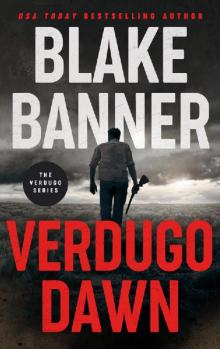 Verdugo Dawn
Verdugo Dawn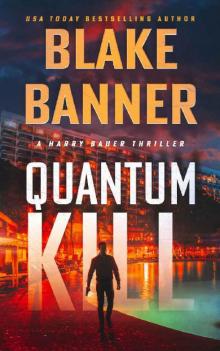 Quantum Kill (Cobra Book 4)
Quantum Kill (Cobra Book 4)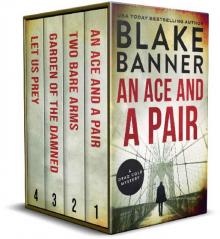 Dead Cold Mysteries Box Set #1: Books 1-4 (A Dead Cold Box Set)
Dead Cold Mysteries Box Set #1: Books 1-4 (A Dead Cold Box Set)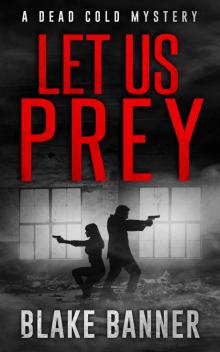 Let Us Prey
Let Us Prey Dead Cold Mysteries Box Set #4: Books 13-16 (A Dead Cold Box Set)
Dead Cold Mysteries Box Set #4: Books 13-16 (A Dead Cold Box Set)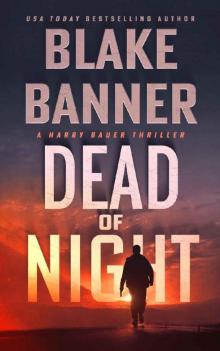 Dead of Night
Dead of Night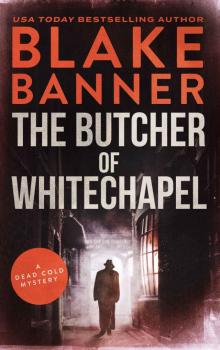 The Butcher of Whitechapel: Dead Cold Mystery 12
The Butcher of Whitechapel: Dead Cold Mystery 12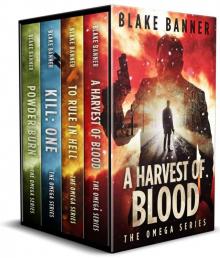 Omega Series Box Set 2
Omega Series Box Set 2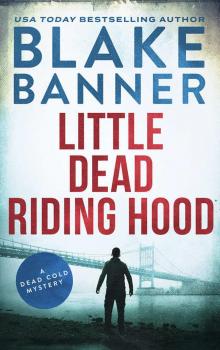 Little Dead Riding Hood: Dead Cold Mystery 13
Little Dead Riding Hood: Dead Cold Mystery 13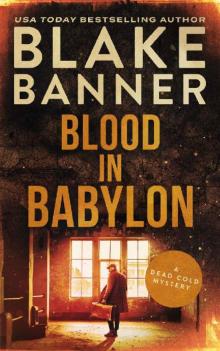 Blood in Babylon
Blood in Babylon Powder Burn
Powder Burn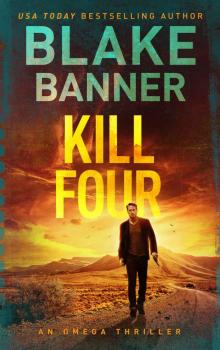 Kill Four
Kill Four Omega Series Box Set 3
Omega Series Box Set 3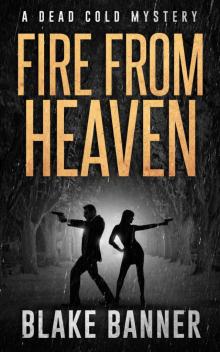 Fire From Heaven: Dead Cold Mystery 9
Fire From Heaven: Dead Cold Mystery 9 Kill - Two
Kill - Two Omega Series Box Set 1
Omega Series Box Set 1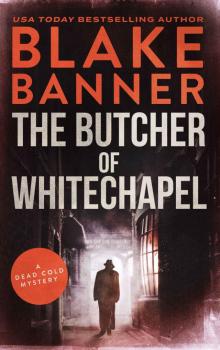 The Butcher of Whitechapel
The Butcher of Whitechapel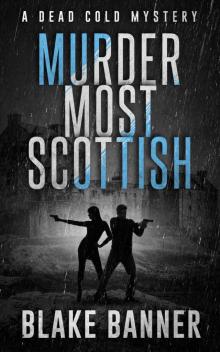 Murder Most Scottish
Murder Most Scottish Dead Cold Mystery Box Set 3
Dead Cold Mystery Box Set 3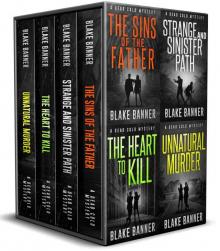 Dead Cold Mysteries Books 5-8
Dead Cold Mysteries Books 5-8 LA
LA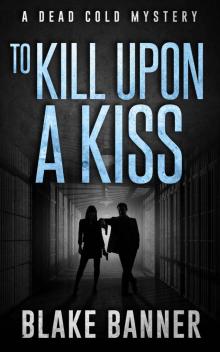 To Kill Upon A Kiss: Dead Cold Mystery 10
To Kill Upon A Kiss: Dead Cold Mystery 10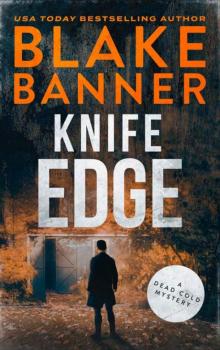 Knife Edge (A Dead Cold Mystery Book 27)
Knife Edge (A Dead Cold Mystery Book 27)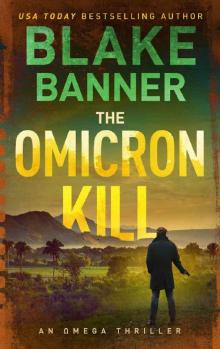 The Omicron Kill - An Omega Thriller (Omega Series Book 11)
The Omicron Kill - An Omega Thriller (Omega Series Book 11)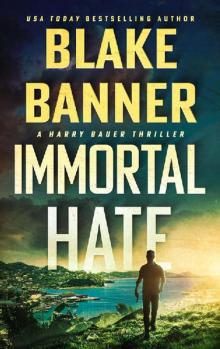 Immortal Hate (Harry Bauer Book 5)
Immortal Hate (Harry Bauer Book 5)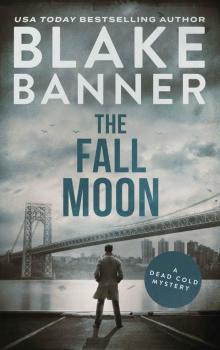 The Fall Moon
The Fall Moon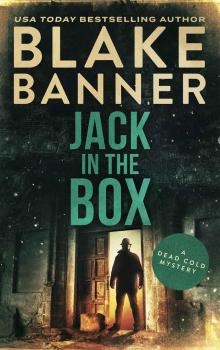 Jack in the Box
Jack in the Box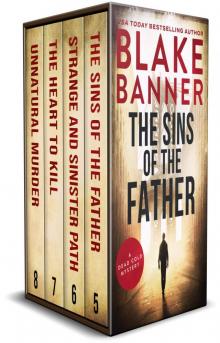 Dead Cold Mystery Box Set 2
Dead Cold Mystery Box Set 2 Dead Cold Mystery Box Set 4
Dead Cold Mystery Box Set 4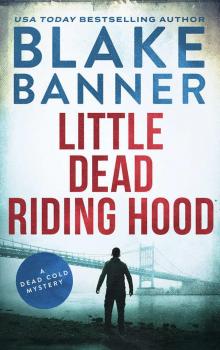 Little Dead Riding Hood
Little Dead Riding Hood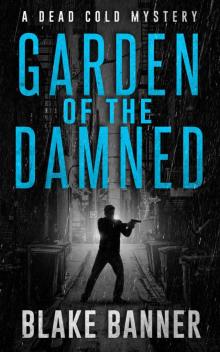 Gardened of the Damned
Gardened of the Damned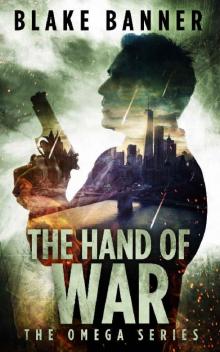 The Hand of War
The Hand of War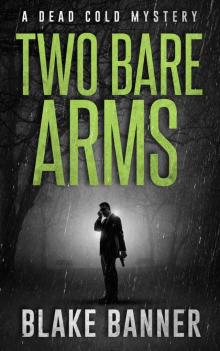 Two Bare Arms
Two Bare Arms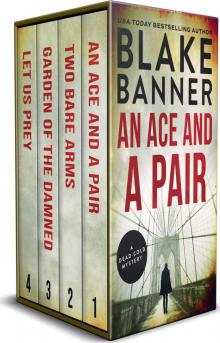 Dead Cold Mystery Box Set 1
Dead Cold Mystery Box Set 1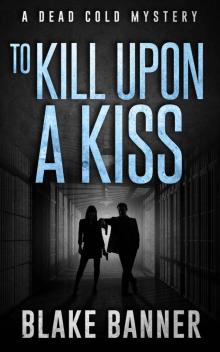 To Kill Upon A Kiss
To Kill Upon A Kiss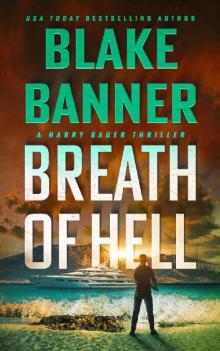 Breath of Hell (Harry Bauer Book 8)
Breath of Hell (Harry Bauer Book 8)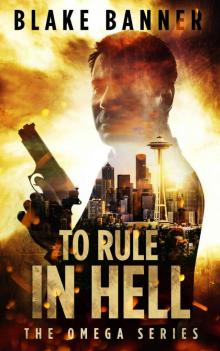 To Rule in Hell
To Rule in Hell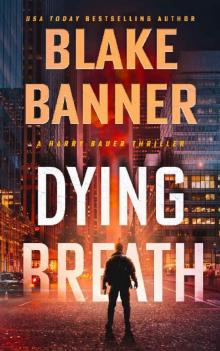 Dying Breath (Cobra Book 2)
Dying Breath (Cobra Book 2)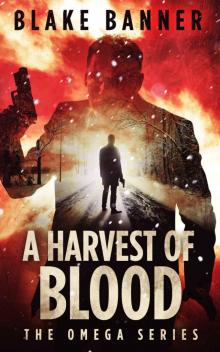 A Harvest of Blood - An Action Thriller Novel (Omega Series Book 5)
A Harvest of Blood - An Action Thriller Novel (Omega Series Book 5)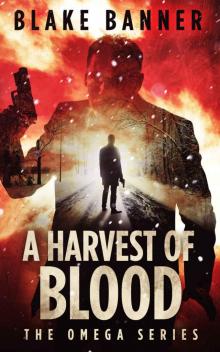 A Harvest of Blood - An Action Thriller Novel
A Harvest of Blood - An Action Thriller Novel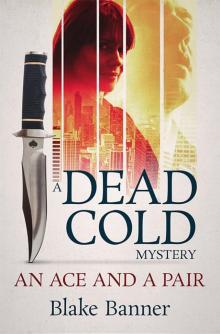 Ace and A Pair: A Dead Cold Mystery (Dead Cold Mysteries Book 1)
Ace and A Pair: A Dead Cold Mystery (Dead Cold Mysteries Book 1) Omega Series Box Set 3: Books 8-10
Omega Series Box Set 3: Books 8-10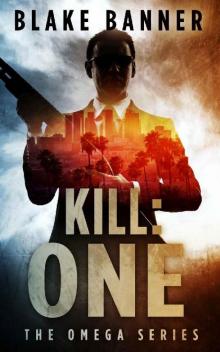 Kill One_An Action Thriller Novel
Kill One_An Action Thriller Novel The Storm
The Storm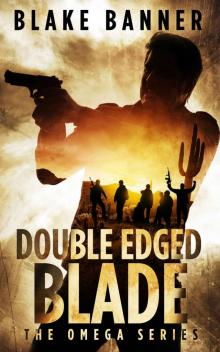 Double Edged Blade
Double Edged Blade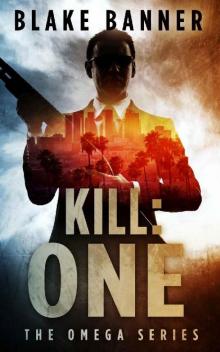 Kill: One - An Action Thriller Novel (Omega Series Book 7)
Kill: One - An Action Thriller Novel (Omega Series Book 7) The Storm - An Action Thriller Novel (Omega Series Book 3)
The Storm - An Action Thriller Novel (Omega Series Book 3)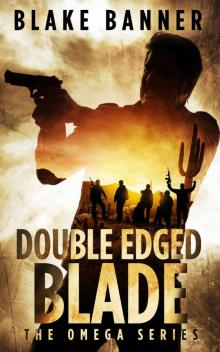 Double Edged Blade - An Action Thriller Novel (Omega Series Book 2)
Double Edged Blade - An Action Thriller Novel (Omega Series Book 2) Dawn of the Hunter
Dawn of the Hunter Dawn of the Hunter - An Action Thriller Novel (Omega Series Book 1)
Dawn of the Hunter - An Action Thriller Novel (Omega Series Book 1)